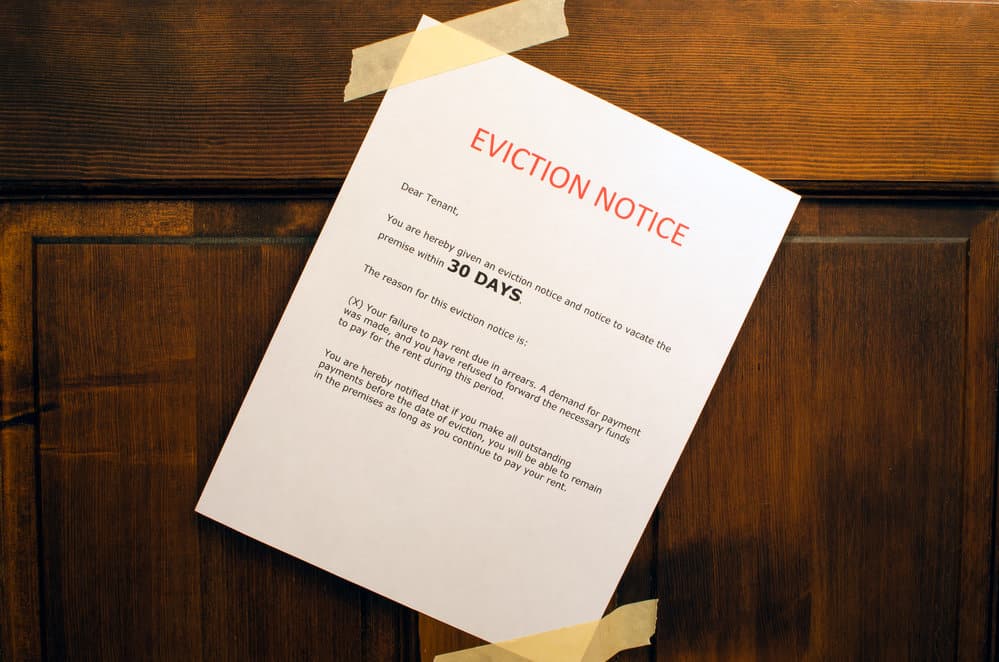Landlords have the duty to notify tenants of any errors or delays in receiving rent.
If a rental agreement has been terminated because it was not paid on time, an eviction lawsuit may become necessary for the enforcement of this right.
A landlord’s most important responsibility is ensuring that their renters are compliant with all agreed-upon terms before they can continue renting from them otherwise known as “landlord privilege.
Tenants deserve notice if there were issues processing payments (missed due dates), elevator repair work taking place next door during peak hours
If you’re a roommate and your partner fails to pay the share of rent agreed upon, it’s best not just for them but also for yourself.
You might have no choice other than paying out all fees from your own pocket in order to keep this property under control while waiting on lawsuit proceedings or otherwise getting compensated if possible. Therefore, understanding how to sue a roommate for unpaid rent is important.

How To Sue Roommate For Unpaid Rent
Gather Your Evidence
This may include a written rental agreement, receipts for rent payments, canceled checks or money orders, and any correspondence between (two roommates) you and your roommate regarding rent payments.
Send A Demand Letter
In this letter, state the amount of money owed and give your roommate a deadline to pay. Be sure to keep a copy of the demand letter for your records as well as proof of mailing or service.
File A Small Claim
If your roommate does not pay the amount owed, you can file a small claim with your local court.
This will likely require filing fees, so be sure to factor that in when deciding whether or not to take this route.

Serve Your Roommate With The Lawsuit
Once you have filed the lawsuit, you must serve your roommate with the paperwork.
This can be done by having a sheriff or process server deliver the papers or by mailing them to your roommate via certified mail.
Attend The Hearing
At the hearing, you will present your evidence and argue your case.
If the judge rules in your favor, you will be awarded a judgment for the amount of rent owed, plus any court costs and fees.
Collect On The Judgment
If your roommate does not pay the judgment, you can take steps to collect the money.
This may include wage garnishment, filing liens on property, or seizing assets.
Taking your roommate to court over unpaid rent is not an ideal situation, but it may be necessary if you are owed a significant amount of money.
Be sure to gather all evidence and documentation before taking any legal action, and consider speaking with an attorney to discuss your options.
Rent Proof
Proof that your roommate or cotenant was accountable for paying a share of the rent is one of the most significant pieces of evidence you’ll need in court (if you decide to suit). You’ll usually get one of the following:

The Lease
There are a few things to consider when you’re sharing an apartment with someone. Suppose both of your signatures were on the lease. In that case, it’s likely that togetherness will be considered as “jointly and severally liable” for rent which means they can still pursue any unpaid balances from either person at any time even if they have made payments before-hand or plan too!
You’ll want proof such has been signed off by everyone involved in unfair arrangements so make sure these documents cover everything adequately beforehand.
Rental Contract
A rental agreement is similar to a lease, except it creates a tenancy for a shorter period (typically month to month).
Even if you didn’t have a written agreement on how to divide the rent among individuals, you can sue your roommate for unpaid rent.
Rent is most jointly responsible and severally accountable for co-tenants under a rental agreement. While a co-tenant is accountable for paying rent under a rental agreement, you’ll probably need something else to indicate any arrangements to distribute rent unequally.
Living with a roommate can be challenging sometimes, particularly if your roommate decides to break the lease agreement against your will.
Assignment or Sublease
It’s likely that you won’t have a copy if your roommate was living in the rental under a sublease or assignment. You can ask your landlord for a copy.
The actual amount of rent your roommate was responsible for will most likely be stated in a sublease or assignment agreement.
Agreement Between Roommates
Hopefully, you have put any agreement to share rent in writing. If not, make sure that both parties are on board with this plan before signing anything–a contract or email would work well for this purpose.
If you’re having trouble getting the judge to sign an order in your favor, provide them with other compelling evidence. Courts will consider and evaluate any documents that are introduced into court including bank statements showing where payments were made on time previously or even just one person’s word about what happened between themselves and their roommate’s rent payment history- so don’t hesitate.
Reasons Why Your Roommate Will Try To Sue You
- Your roommate may try to sue you if they feel you have wronged them somehow.
- If your roommate feels like you have destroyed their property, they may try to sue you for compensation.
- If your roommate feels like you have put them in danger, they may try to sue you for damages.
- If your roommate feels like you have invaded their privacy, they may try to sue you for invasion of privacy.
- If your roommate feels you have caused them emotional distress, they may try to sue you.
- If your roommate feels like you have interfered with their life, they may try to sue you for interference.
- If your roommate feels like you have taken their things without permission, they may try to sue you for theft.
- If your roommate feels like you have lied to them, they may try to sue you for defamation.
- If your roommate feels like you have breached your contract with them, they may try to sue you for breach of contract.
- If your roommate feels like you have harassed or stalked them, they may try to sue you for harassment or stalking.
Instead of pursuing a case, trying to resolve the problem with the delinquent roommate is sometimes preferable.
Tips for Avoiding Legal Disputes with Roommates
- Clear Communication: Always ensure clear and open communication with your roommate. Discuss potential issues and agree on how to handle them before they escalate.
- Written Agreement: Have a written agreement in place that clearly outlines who is responsible for what. This should include rent, utilities, chores, and other shared responsibilities.
- Respect: Respect each other’s space, property, and privacy. This is crucial in maintaining a peaceful living situation.
- Conflict Resolution: If disagreements arise, resolve them calmly and respectfully. If necessary, consider mediation.
- Insurance: It may be beneficial to have a renter’s insurance to protect against damage or loss of personal items.
- Document Everything: Keep a record of all payments and agreements. This can serve as crucial evidence if a dispute arises.
- Know Your Rights: Familiarize yourself with your rights as a tenant. This can help if legal issues come up.
Remember that while these tips can help avoid disputes, they can’t prevent all potential problems. Always consult a legal professional if you have specific concerns or a serious dispute arises.
Frequently Asked Questions
What if my roommate refuses to pay their share of the utilities?
You might have legal recourse if you have a written agreement. However, your first step should be to discuss the issue with your roommate and try to find a solution.
Can a roommate sue for emotional distress?
A roommate can sue for emotional distress, although it can be difficult to prove in court. If you are experiencing issues with your roommate, always strive for open, respectful communication to prevent escalation.
What if my roommate leaves before the lease is up?
If your roommate leaves before the lease ends, they’re still legally responsible for their share of the rent and utilities. If they refuse to pay, you may need to seek legal advice.
How can I protect my belongings in a shared living situation?
A: Respect and clear communication are key. Investing in renter’s insurance is also advisable, which can provide coverage for damage or loss of personal items.
My roommate and I disagree on house rules, how can we resolve this?
Open dialogue is crucial. Discuss your concerns, try to understand their viewpoint, and work towards a compromise. If disagreements persist, consider bringing in a neutral third party for mediation.



